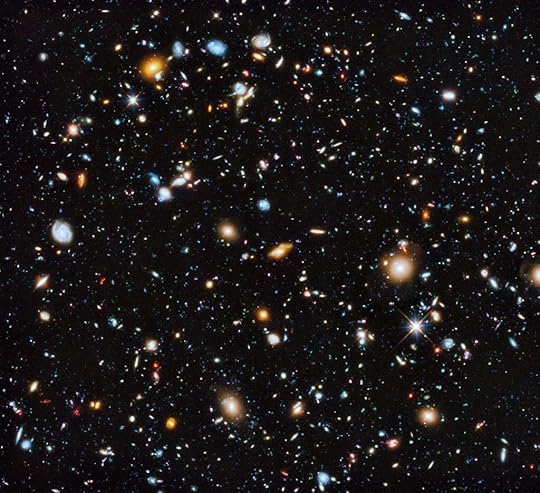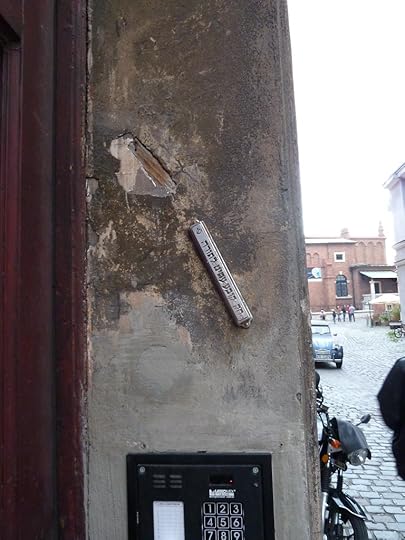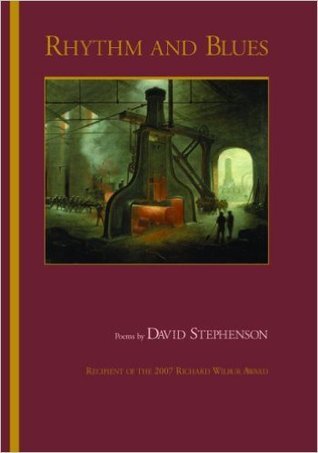Robin Helweg-Larsen's Blog, page 63
March 9, 2022
Sonnet: ‘We Know We Will Be Dead’

We know we will be dead, who are alive.
But should some element of us survive –
fragment of consciousness or memory –
what value could it have? What should it be
that the whole universe might benefit?
The atom matters – what’s not made of it?
And we’re not large – not like a conscious star
(if time will let us all evolve that far).
You’re not much different in real magnitude
from an ant crushed for going for your food,
a gnat rubbed out, its tiny consciousness
a dot… but does it build the universe?
If that gnat can’t, I don’t see how you can:
there’s not much difference between gnat and man.
Does a poem of 14 lines, rhymed in pairs, count as a sonnet? Perhaps, but it doesn’t feel quite right. Petrarchan and Shakespearian sonnet structures, with more complex structures of rhyme, produce a much greater impact with the final line–a sense of revelation, inevitability, an impression of absolute truth–purely by the successful rounding out of the pattern. I like this poem’s ending couplet… but it would be stronger if the previous 12 lines were better structured.
‘We Know We Will Be Dead’ was published in the most recent Allegro, edited by British poet Sally Long.
“Hubble’s colourful view of the Universe” by Hubble Space Telescope / ESA is marked with CC BY 2.0.
March 7, 2022
Potcake Poet’s Choice: Max Gutmann, ‘Kindling’

The day his girlfriend’s father let him cut
The kindling was the cracking of a crust,
A heavy volume falling open at
A pleasant page. He felt the guard relax
At last: it takes some trust
To hand a man an ax.
They foraged for straight grain, which wouldn’t knot
The blade, but give hospitably, a quick
Clean breach, if he could hit the angle right.
The older man first watched, and then went in.
Alone, he chopped each stick
To almost pencil-thin,
Absorbed in seeking out that magic split,
Delicious every time that it occurred,
A touch of luck rewarding skill and sweat,
Though earned, still only half-anticipated,
Like just the sought-for word,
Or love reciprocated.
Max Gutmann writes: “I like the pattern—unique without being complex, rhyming throughout but ringingly only at the stanza ends. I hope the last simile feels both surprising and, like an ax biting a block, inevitable.”
Max Gutmann has worked as, among other things, a stage manager, a journalist, a teacher, an editor, a clerk, a factory worker, a community service officer, the business manager of an improv troupe, and a performer in a Daffy Duck costume. Occasionally, he has even earned money writing plays and poems.
‘Kindling’ was first published in The Formalist.
maxgutmann.com
“Chopping kindling” by *Tom* is marked with CC BY-NC-SA 2.0.
March 5, 2022
Sonnet: ‘Voyage’

Some watch the widening, receding wake
On life’s long voyage. Others at the bow
Scan ahead, wondering what route we take.
(But Past and Future point to one end, Now.)
When disembarked, what will your story be?
“I looked back, couldn’t tell where we’d begun…”
“I tried to look ahead, but couldn’t see…”
“I read lots.” “Slept.” “I made friends.” “I made none.”
“Sunsets were nice.” “The food was just so-so.”
“I helped someone.” “I tried, but got in fights.”
What’s next?
Aboard Earth round the sun all go,
Each spinning whirl hundreds of days and nights,
Through scores of rounds. How’d we get here? Don’t know.
Then each, some unknown -day and -where, alights.
This poem was originally accepted for Contemporary Sonnet but, as far as I understand, when Charlie Southerland took over from the previous editor all the online passwords had been lost, and the magazine folded. So the poem went to Verse-Virtual instead. Given that its subject matter is the unpredictability of life, such changes for the poem’s own voyage are quite in keeping.
“Ship’s wake” by Dany_Sternfeld is marked with CC BY-NC-ND 2.0.
March 2, 2022
Potcake Poet’s Choice: Tom Vaughan, ‘To Whom It May Concern’

Remember waking, starting, stupidly young
the promises, the lies, the world’s forked tongue
Remember how you longed for love, and how
you long for love the same way, even now
you know that there’s no cure for loneliness
not even love, let alone happiness
Remember marriage, children, summer holidays
Remember work, remember all the ways
you chose to be defined which were not you –
if there’s a self definable as ‘true’
Then remember prayer, answered or unanswered
(either way, how to tell?). Remember whispered
doubts. Remember the words and images
which led/misled you on your pilgrimage
Remember how you crossed the desert, cursing
Remember how you crossed the desert, hoping
Remember age and illness, letting go
of everything you’d told yourself you know
Remember forgetting the Lord your God decreed
you must remember him, and teach your seed
the stories storing their identity.
And if you read this, please remember me.
Tom Vaughan writes: “I like it because it came in a rush, like something hammering in my head, and because it reflects not just what seems to me the crucial nature of the link between memory (however selective and indeed creative) and identity, a link I saw brutally put to the test during my mother’s long decline with Alzheimer’s, but what has always fascinated me about Judaism and the wonderful emphasis in the Jewish scriptures and festivals on the need to remember, in order to retain/create a sense not just of individual but also of collective identify.
The rush also meant that substantial trimming was called for: it was originally about twice the length. But I hope the final compressed result pins down more precisely the push and tumble of the writing process.”
Tom Vaughan is not the real name of a poet whose previous publications include a novel and two poetry pamphlets (A Sampler, 2010, and Envoy, 2013, both published by HappenStance). His poems have been published in a range of poetry magazines, including several of the Potcake Chapbooks:
Careers and Other Catastrophes
Familes and Other Fiascoes
Strip Down
Houses and Homes Forever
Travels and Travails.
He currently lives and works in London.
https://tomvaughan.website
‘To Whom It May Concern’ was first published in Snakeskin 277, October 2020
Photo: “Jewish house with Mezuzah” by La Laetti is marked with CC BY-NC 2.0.
February 28, 2022
Sonnet: ‘Thunderclouds’

Lightning connecting heavens to the Earth
When heat, humidity grow thunderclouds–
Blackening, building to torrential floods–
Is how the Singularity will birth.
Then our new thunderous AI gods appear,
Growing and killing, Shiva-like, their wards.
(I, for one, welcome our new Overlords…)
Their lightning flashes blind, freighted with fear.
From rising mists and steams of consciousness
Poetry stormclouds, too, flash and connect.
When humans by our own AI are wrecked–
Our own connected selves and selflessness–
The Jovian bolts of electricity
Will be posthuman–and pure poetry.
No, this doesn’t have anything to do with Vlad the Bad‘s invasion of Ukraine. It is just part of my decades-long fascination with the way that technology is laying the foundations for AI that will be more powerful than humans, and for brain-to-brain communication that will move us to a Borg-like condition. And then what? It’s unknowable, but it will be the end of the world as we know it. And I feel fine. Nature is in a permanent state of change and replacement and development, and humans are not exempt from being obsoleted. Not this year or next. But in 100 years, who knows what transitions will be happening?
This sonnet was first published in the Shot Glass Journal.
“Thunderhead” by Nicholas_T is licensed under WordPress Creative Commons
February 26, 2022
Potcake Poet’s Choice: Gail White, ‘Feeding the Feral Cats’

Three at the door tonight –
big ugly orange one,
two gray and white –
staring reproachfully
over the empty dishes:
Where are the loaves and fishes?
And I put out some food,
having no more excuse than that
I might be heaven’s feral cat –
driven by cold despair,
not seeking warmth or bed
or even entrance there –
but sure of being fed.
Gail White writes: “Cats are my totem animal and they have a way of inserting themselves into my poetry. This one was printed in the Alabama Literary Review, and a reader wrote to say she agreed with my eucharistic theology. I didn’t even know I had a eucharistic theology.”
Gail White is the resident poet and cat lady of Breaux Bridge, Louisiana. Her books ASPERITY STREET and CATECHISM are available on Amazon. She is a contributing editor to Light Poetry Magazine (lightpoetrymagazine.com). “Tourist in India” won the Howard Nemerov Sonnet Award for 2013. Her poems have appeared in the Potcake Chapbooks ‘Tourists and Cannibals’, ‘Rogues and Roses’, ‘Families and Other Fiascoes’ and ‘Strip Down’.
https://www.amazon.com/Asperity-Street-Gail-White/dp/1927409543
“Many Feral Cats” by Chriss Pagani is licensed under CC BY-NC-ND 2.0
February 23, 2022
Poem: ‘Advances in Personal Care’

1700 BCE
A length of fibre to extract a tooth –
a flint to decorate yourself with scars –
a large, strong thorn to make holes for tattoos –
an oyster shell to scrape off excess hair…
so health’s improved and beauty is accented.
1700 CE
High heels and wig show stature, vigour, youth;
a monocle improves both look and looking.
How we’ve advanced, compared to ancient times!
Some say there’ll be advances still to come,
but how, when all’s already been invented?
This poem is a riff on a 19th century joke. Charles H. Duell, the Commissioner of US Patent Office in the late 1890s, is widely quoted as having stated that the patent office would soon shrink in size, and eventually close, because “Everything that can be invented has been invented.” (In fact Duell said in 1902: “In my opinion, all previous advances in the various lines of invention will appear totally insignificant when compared with those which the present century will witness. I almost wish that I might live my life over again to see the wonders which are at the threshold.”) But the joke appears to have had earlier incarnations in the 19th century in Punch magazine and elsewhere, presumably as the world was adapting to the reality of life changing more and more rapidly.
The poem is in iambic pentameter, but the only rhymes are between the two verses: the first lines of each and the last lines of each. But I feel that produces enough echo to make it sound adequate.
Photo: “France-001560 – Louis XIV” by archer10 (Dennis) is licensed under CC BY-NC 2.0
February 21, 2022
Potcake Poet’s Choice: Claudia Gary, ‘Phonograph’

Remember, dear, when this was the one way
to make a disk sing? Full-size, not compact—
and both the disk and player would obey
only if you possessed your share of tact:
You’d lift the tone arm, puff a bit of air
across its fragile needle to remove
new dust, or use a brush of sable hair
to coax it out. After each vinyl groove
was polished with the softest chamois cloth,
you’d spin a record on its table, place
the needle over it, light as a moth—
you must remember! For the way you trace
the path of every melody I store
shows gentleness I’ve never known before.
Claudia Gary writes: “In case anyone still thinks art and science belong in different categories, it may help to remember that long before there were computer nerds, there were music nerds (audiophiles). Back then, enjoying high fidelity sound at home required paying close attention to detail and taking good care of fussy, sensitive machines. They may not have been as cavalier as today’s machines that demand upgrades at their own convenience; but yesterday’s machines did need a lot of TLC in exchange for beautiful music. And so does love.”

Claudia Gary lives near Washington, D.C., in Northern Virginia, and teaches workshops on Villanelle, Sonnet, Natural Meter, Poetry vs. Trauma, Poetry for Musicians, etc., at The Writer’s Center (writer.org) and elsewhere, currently via Zoom teleconference. Author of Humor Me (David Robert Books, 2006, in which Phonograph was published), and of chapbooks including Genetic Revisionism (2019) and Bikini Buyer’s Remorse (2015), she is also a health science writer, visual artist, and composer of tonal chamber music and art songs. See pw.org/content/claudia_gary; follow her on Twitter at @claudiagary.
Photo credits:
“1968 … all in one portable stereo phonograph!” by x-ray delta one is licensed under CC BY-SA 2.0
Claudia Gary photo by John Flannery
February 19, 2022
Poem: ‘The Entertainer’s Servant’

See the violinist
blocking, enchanting passing crowds with his bowing
and watch some ragged child, the very thinnest,
with held-out cap through those crowds coming and going.
Or the organ grinder
haunting the emotions and memories of all,
his songs life’s bittersweetness’s reminder….
but it’s his well-dressed monkey makes the coins fall.
And more: the child’s home work handed in
though mostly done by mummy;
and more: the wisecracks bandied in,
seemingly by the ventriloquist’s dummy…
This is the poet’s story:
somewhere some unseen Maker
wrings from a wild wand
magnificence, sadness, glory…
while the mere poet capers,
postures, and holds out a hand.
All of which is merely a complicated rumination on not knowing where poetry comes from. It feels like the initial impulse and the key words come from outside, from some muse or god of poetry… and the poet is merely a puppet: observed, apparently autonomous, but not the true artist.
This poem was published in The Road Not Taken: The Journal of Formal Poetry. It may not be as formal as you would expect, but it has a steady structure complete with rhymes. I make no apologies for its inadequacies – the poem itself allows me to blame the unknown puppeteer.
February 16, 2022
Review: ‘Rhythm and Blues’ by David Stephenson

David Stephenson’s ‘Rhythm and Blues’ was the 2007 Richard Wilbur Award winner, and contains some excellent poems. Its back-cover blurbs are accurate–as Kim Bridgford states, the collection has “wisdom, a plain-spoken, convincing style, and a sense of irony… all the time with impressive technical skill.”
Several of the sonnets are excellent: ‘Pilate’ meditates on the harshness of the law,
But why waste breath? In six months, who will mourn
This insect, or recall that he was born?
The ‘Geologist’ speaks of his passion for the history of rocks, ending:
The present is a world of dirt and sand
And people–they of the immortal soul–
Whom I do not pretend to understand,
Though I admire them in their long-term role
As precursors to limestone, chalk, and coal.
And beyond the sonnets are villanelles, and longer blank verse monologues in the voices of a toll collector, a housebreaker, a corporate hatchet man, and so on; and poems with various structures of stanza.
But there is a problem: the ruthless, relentless, metronomic use of iambics. The entire collection is in either iambic pentameter or iambic tetrameter. In general, the shorter pieces are good; the longer pieces are thematically interesting, but I find pages of blank verse unappealing. Stephenson can obviously think easily in iambic pentameter; but that skill tends towards blather. As the book title suggests, there is rhythm; but with insufficient variety for the claim of music.
But maybe this is expecting too much. Stephenson is a committed formalist, to the extent of having started his own Pulsebeat Poetry Journal for formal verse. His sonnets in particular are very good. And the book is highly readable and rereadable–though in small doses, not straight through in one go.
And there is actually one break in the unremitting use of iambics, in the shortest and most whimsical poem in the book–and for all those reasons perhaps my favourite. It is ‘To a Garbage Truck’:
Stop for me, romantic sloop,
When all your cargo is on board
And your ride low upon the waves,
For I would cast my lot with yours
And put forth on the open street
En route to some strange orient
Full of exotic ports of call
Beyond the gray horizon.



